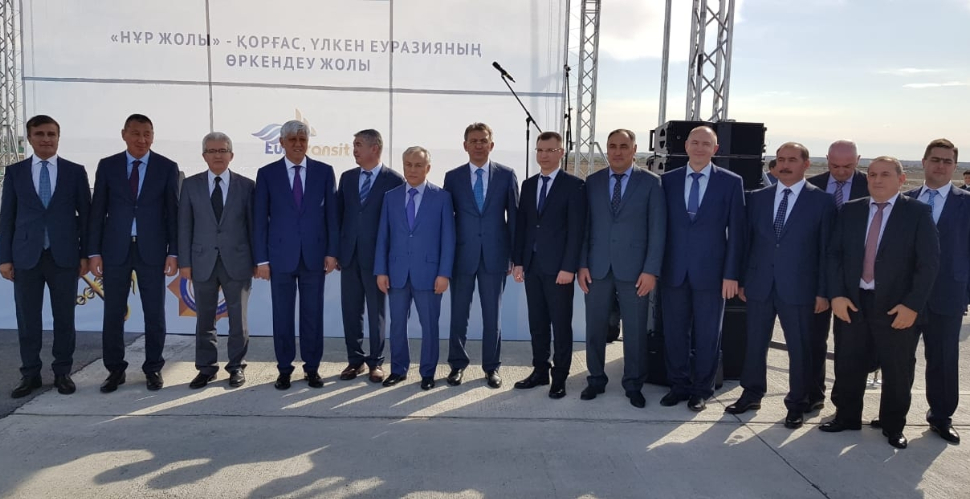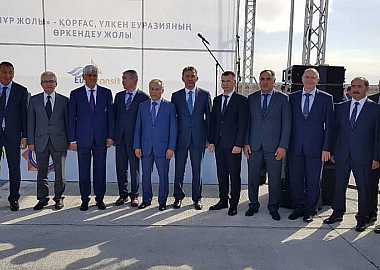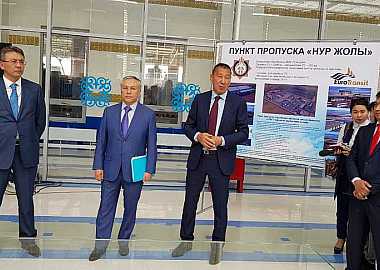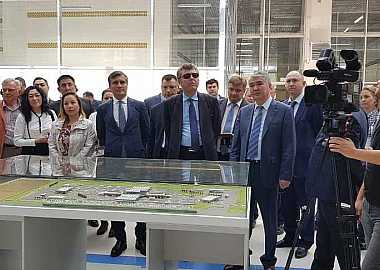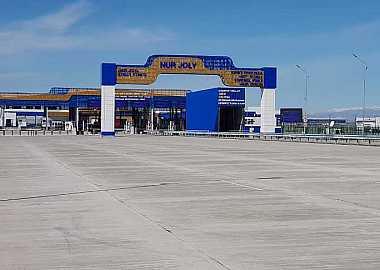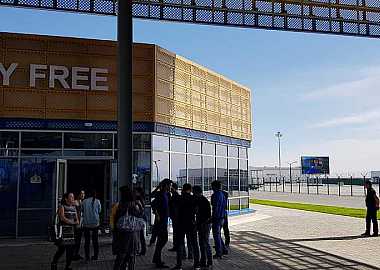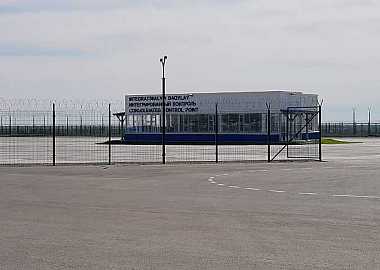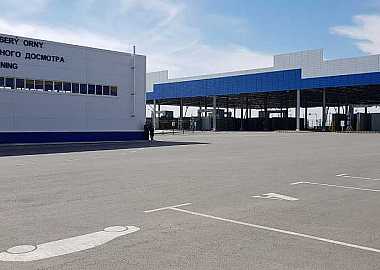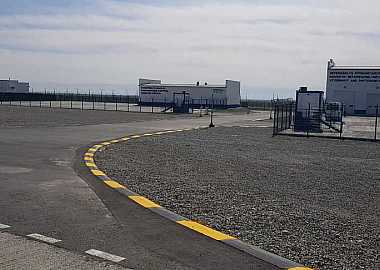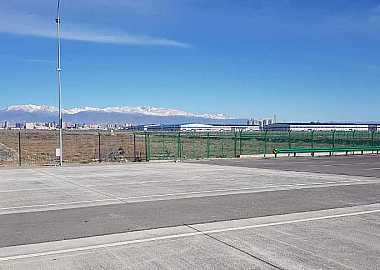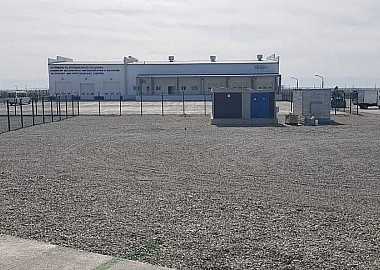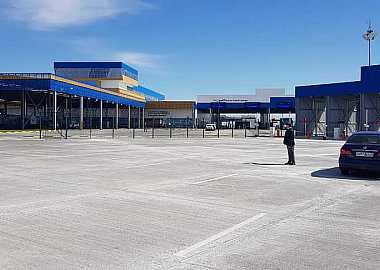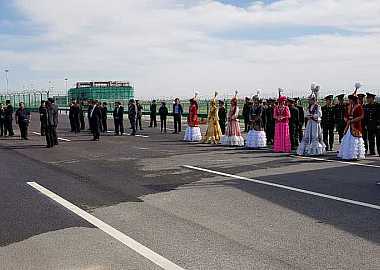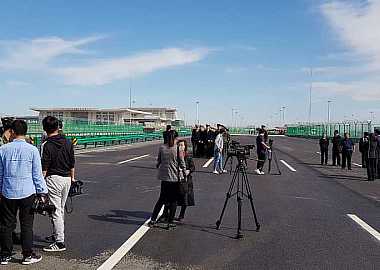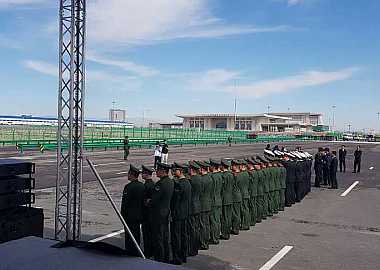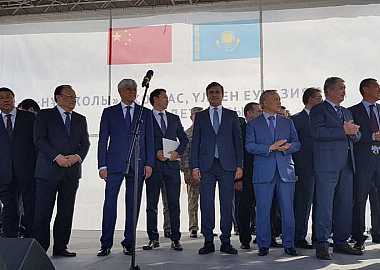Deputy Secretary General of the Turkic Council Dr. Ömer Kocaman took part in the opening ceremony of the "Nur Zholy" checkpoint organized by the State Revenue Committee of the Ministry of Finance of the Republic of Kazakhstan on 27 September 2018 in Khorgos, Kazakhstan-China border.
"Nur Zholy," an essential part of the world`s biggest dry ports the Khorgos Gateway connecting Kazakhstan to China by rail, is a motor vehicle crossing point and a center for transportation and logistics. The complex, equipped with the latest technology, will allow the daily movement of 2.5 thousand vehicles and 15 thousand individuals.
The opening of the "Nur Zholy" checkpoint, is the second significant recent development in the region after the signing of the Convention on the Legal Status of the Caspian Sea, which establishes the legal framework for sharing the Caspian basin and its resources.
These two endeavors will develop the comparative advantage for the countries located along the Central Transport Corridor including the Member States of the Turkic Council, especially in the transport and logistics sectors.
The facility will help capitalize the transit potential of Kazakhstan increasing the trade volume and quantity of goods coming from China to Europe (and vice versa) through the Caspian Sea and farther over Azerbaijan, Georgia, and Turkey. It will also contribute to the efficient management of the transport flows and development of transport infrastructure, and create favorable conditions for economic growth in the region.
"Nur Zholy," an essential part of the world`s biggest dry ports the Khorgos Gateway connecting Kazakhstan to China by rail, is a motor vehicle crossing point and a center for transportation and logistics. The complex, equipped with the latest technology, will allow the daily movement of 2.5 thousand vehicles and 15 thousand individuals.
The opening of the "Nur Zholy" checkpoint, is the second significant recent development in the region after the signing of the Convention on the Legal Status of the Caspian Sea, which establishes the legal framework for sharing the Caspian basin and its resources.
These two endeavors will develop the comparative advantage for the countries located along the Central Transport Corridor including the Member States of the Turkic Council, especially in the transport and logistics sectors.
The facility will help capitalize the transit potential of Kazakhstan increasing the trade volume and quantity of goods coming from China to Europe (and vice versa) through the Caspian Sea and farther over Azerbaijan, Georgia, and Turkey. It will also contribute to the efficient management of the transport flows and development of transport infrastructure, and create favorable conditions for economic growth in the region.


